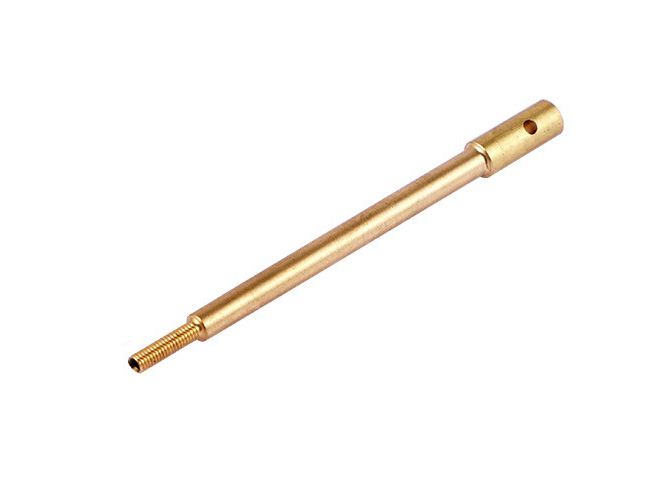CNC Turning of Bronze Components for Agricultural Machinery Parts
Introduction
The Agricultural Machinery industry demands highly durable and reliable components to withstand harsh operating conditions, including exposure to dirt, moisture, corrosion, and constant mechanical wear. Bronze alloys, celebrated for their exceptional strength, corrosion resistance, and superior wear properties, have become an essential choice for precision components such as bushings, bearings, gears, and hydraulic fittings.
CNC turning services offer unparalleled precision and consistency in manufacturing these bronze parts. CNC turning enables the production of intricate shapes, accurate dimensions, and excellent surface finishes, ensuring reliable performance and extended service life in demanding agricultural machinery applications.
Bronze Alloy Materials
Material Performance Comparison
Bronze Alloy | Tensile Strength (MPa) | Yield Strength (MPa) | Hardness (HB) | Typical Applications | Advantage |
|---|---|---|---|---|---|
380-450 | 125-170 | 80-110 | Bushings, wear plates | Excellent wear resistance, good machinability | |
620-760 | 240-480 | 150-190 | Bearings, gears, heavy-duty bushings | Superior strength, exceptional corrosion resistance | |
515-620 | 220-310 | 170-210 | Heavy-load components, hydraulic fittings | High mechanical strength, strong corrosion resistance | |
240-310 | 110-150 | 65-80 | Light-load bearings, sleeves | Superior machinability, excellent anti-friction properties |
Material Selection Strategy
Selecting the appropriate bronze alloy for agricultural machinery components depends on the application requirements:
Components exposed to heavy loads and severe mechanical wear: C63000 Aluminum Bronze provides excellent strength and wear resistance.
Moderate-load bushings and bearings: C51000 Phosphor Bronze offers reliable wear resistance combined with good machinability.
Hydraulic fittings and heavily stressed gear components: C95400 Aluminum Bronze is ideal for its high mechanical strength and resistance to corrosion.
Low-load, friction-sensitive parts such as sleeves and precision bearings: C93200 Leaded Tin Bronze provides superior machinability and reduced friction.
CNC Turning Processes
Process Performance Comparison
CNC Turning Technology | Dimensional Accuracy (mm) | Surface Roughness (Ra μm) | Typical Applications | Key Advantages |
|---|---|---|---|---|
±0.005-0.015 | 0.4-0.8 | Precision bearings, hydraulic fittings | Accurate dimensions, excellent surface finish | |
±0.005-0.02 | 0.6-1.2 | Complex gears, bushings | Efficiency for intricate geometries, fewer setups | |
±0.01 | 0.8-1.6 | Standard bushings, sleeves | Specialized tooling, efficient bronze machining | |
±0.002-0.01 | 0.2-0.4 | High-precision sealing surfaces, bearing components | Superior surface quality, ultra-precise tolerances |
Process Selection Strategy
Optimal CNC turning selection is influenced by precision requirements, geometric complexity, and production efficiency:
Precision bearings and fittings requiring accurate dimensions: Precision CNC Turning delivers exceptional consistency and dimensional control.
Complex-shaped gears and multi-operation components: Multi-Axis CNC Turning provides efficient machining with fewer setups.
Standard components like bushings and sleeves: Bronze CNC Machining ensures efficient, cost-effective production tailored to bronze alloys.
High-precision surfaces and sealing components: CNC Grinding Service guarantees tight tolerances and ultra-fine surface finishes.
Surface Treatment
Surface Treatment Performance
Treatment Method | Corrosion Resistance | Wear Resistance | Temperature Stability (°C) | Typical Applications | Key Features |
|---|---|---|---|---|---|
Excellent (≥1000 hrs ASTM B117) | High (HV600-750) | Up to 400 | Bearing surfaces, precision gears | Exceptional durability, uniform coating | |
Good (≥400 hrs ASTM B117) | Moderate | Up to 180 | Hydraulic fittings, sleeves | Cost-effective corrosion protection, enhanced solderability | |
Good (≥100 hrs ASTM B117) | Moderate | Up to 250 | Agricultural machinery fasteners, components | Attractive appearance, moderate corrosion protection | |
Moderate (≥300 hrs ASTM B117) | Moderate | Up to 150 | General bronze parts | Clean surface, improved corrosion resistance |
Surface Treatment Selection
Surface treatments enhance bronze components according to agricultural machinery needs:
Components exposed to extreme wear and corrosion: Electroless Nickel Plating ensures superior durability and protection.
General fittings and hydraulic components: Tin Plating provides reliable corrosion protection and easy assembly.
Components requiring aesthetic finishing and moderate corrosion resistance: Black Oxide Coating delivers effective protection and visual appeal.
Standard bronze components with moderate exposure: Passivation improves cleanliness and corrosion resistance.
Quality Control
Quality Control Procedures
Precise dimensional inspections using Coordinate Measuring Machines (CMM) and precision gauges.
Surface roughness evaluations using high-accuracy profilometers.
Mechanical property testing to confirm tensile strength and hardness standards.
Non-destructive testing (NDT) methods, including ultrasonic inspection (UT) and magnetic particle inspection (MPI), for structural integrity verification.
Corrosion resistance assessments using ASTM B117 salt spray testing.
Full traceability and documentation meeting ISO 9001 and agricultural equipment industry standards.
Industry Applications
CNC-Turned Bronze Applications
Durable bushings and bearings for heavy-duty agricultural equipment.
Precision hydraulic fittings and connectors.
Robust gears and drive components for farming machinery.
Wear-resistant sleeves and friction components for tractors and harvesters.
Related FAQs:
Why is bronze preferred for agricultural machinery components?
How does CNC turning ensure accuracy in bronze agricultural parts?
Which bronze alloy is best for heavy-load bearings in agricultural equipment?
What surface treatments extend the lifespan of CNC-turned bronze parts?
What quality standards apply to CNC-turned bronze components used in agriculture?

